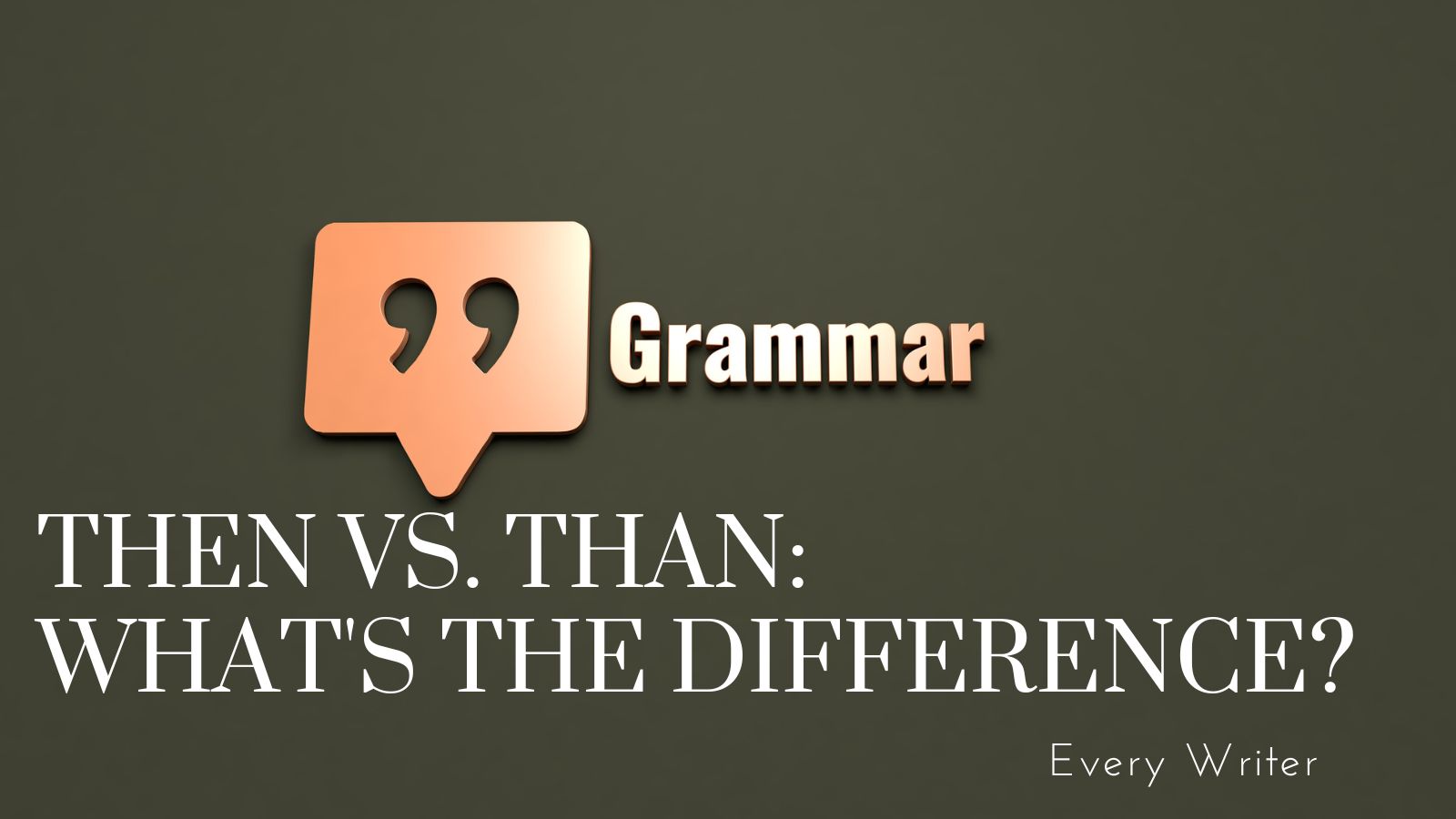Then vs. Than: What’s the Difference?
It’s a common grammar mix-up – using then instead of than and vice versa. These two small words sound alike but have very different meanings and uses. Mastering the then vs. than distinction will level up your writing. This quick guide covers:
- Definitions and key differences
- Proper usage examples
- Tricks to stop confusing them
Then vs. Than: The Key Differences
Then and than have distinct roles:
Then – Indicates time or sequence. It refers to something happening next chronologically or conveys consequences.
Examples:
- I will go to work, then meet my friend for dinner.
- If you don’t renew, then your subscription will lapse.
Than – Makes comparisons between things. It references relative differences of quantity, quality, or degree.
Examples:
- My car gets better gas mileage than your truck.
- I would rather read than watch TV.
Using Then vs. Than Correctly
Then links events in time or logic. Ask “what happens next?” or “what follows from this?” If the answer fits, use then.
Than compares things side-by-side. Ask “what differences exist between these options/items?” If comparing, choose than.
Tricks to Stop Confusing Then and Than
If you struggle with then vs. than errors, these tips can help:
- Remember the phrase: “Then denotes time, than compares.”
- Break apart sentences and analyze each clause. Identify time/logic flows vs. comparisons.
- After writing, search for then/than uses and double check proper context.
- If unsure, test by substituting the other word. Does the meaning completely change?
Properly differentiating then from than takes practice. But mastering these subtle words precisely conveys ideas and polishes writing skills. Reference this guide when needed until navigating then vs. than becomes second nature. Precision with these small but mighty words pays dividends in conveying exactly what you intend.
Etymology (word origins) of then and than:
Then:
Then has Germanic origins and is related to the Old English word ðenne. It derives from the Proto-Germanic word *thanan, meaning “at that time.” As an adverb it was originally used to denote time, referring to something happening next or afterward. This temporal sense of “at that time” evolved into its modern uses indicating sequence or consequence in phrases like “if…then”.
Etymological root:
*thanan > ðenne > then
Than:
Than is derived from the Old English word þonne, meaning “when” or “at the time when.” It originated from the Proto-Germanic word *than, indicating time and used in comparisons to reference relative differences between two or more things. Over time it became the subordinating conjunction than seen in comparative statements today.
Etymological root:
*than > þonne > than
So in summary:
Then evolved from words literally meaning “at that time,” developing temporal and logical sequence senses.
Than stemmed from comparison constructions meaning “when” denoting relative differences between elements.
Both then and than share an original Proto-Germanic root word starting with th- indicating time. But then took on “what next?” meaning while than became an indicator of comparison relationships. Remembering these word origin stories can provide helpful context on why these similarly spelled and sounding words have diverged into very unique roles!
- How to Build Unstoppable Story Tension: 5 Proven Techniques (+ Free Worksheet) - July 3, 2025
- The Kindness and Quiet Desire of Strawberries - July 2, 2025
- Science Fiction Quiz #1 - May 21, 2025

A game that is extremely hot right now is Waffle game. You are a waffle lover and also love word games. Try Waffle now to find the hidden keyword with a new and exciting gameplay